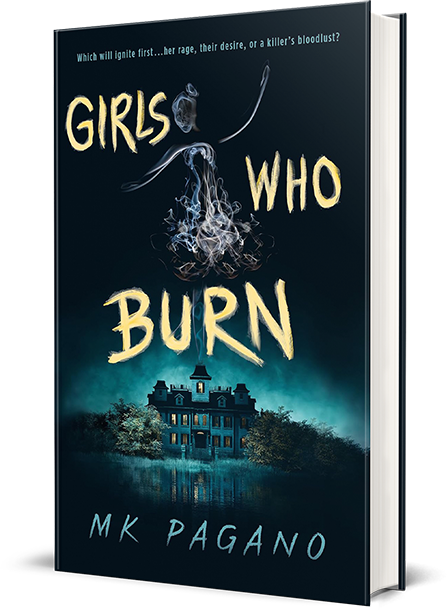Writers: On Picking the Right Day Job

Last week I talked about the advantages to having a day job as a writer, and today I want to take it a step further…
Namely, how to ensure you end up in the right day job.
I wrote a post last year that touched on this, but now, nearly a year into my new job, I have some new things to share for those who may be just starting out looking for a job, or anyone looking to make a change.
My steps for picking the right day job are:
1. Like your job You don’t have to love it. After all, you’re a writer; chances are you won’t love anything the way you love writing. But you should find a job where you find the work relatively stimulating and where the environment suits you. “But it doesn’t matter if I like this job; it’s just a paycheck,” you may argue. And I will say back: yes, you’re doing this for the money, but at the same time, you are spending the majority of your time in this place. Spending lots of time in a place you hate is not good for you emotionally, and therefore is not good for your writing career.
Trust me on this.
2. Like the people Yes, it’s impossible to get along with ALL the people, and you shouldn’t be bending over backwards to please anybody. But workplaces all come with their own dynamics, set by both the company’s owners and the people who work there. In large companies, the dynamic of the people can even vary from department to department. It’s hard to suss out just by the interview how well you’ll get along with the people, but take cues from the way people interact with each other, not just you. You’re spending every day with these people, after all; best not to hate each other. Bonus: some of them could even become friends that last beyond the job itself.
3. Find stimulating work My first full-time job was as an administrative assistant. Fine, I thought. I’ll use all the brain power I’m not using at this job and put it into my writing. That worked for a little while, but eventually I became resentful of the amount of time I spent making lunch reservations and brewing coffee. It got to the point where I’d be so drained from running around all day doing mindless tasks, my creativity actually suffered. When I got a job in marketing that required using my skills (especially my writing skills!), my fiction actually started to improve. Creativity begets creativity.
4. … but don’t find stressful work A little stress is nearly always inevitable with any sort of activity that involves interacting with other humans to get things done. But if you’re surrounded by idiots who have no idea what they’re doing, who blame things on you/take credit for your work, who have unrealistic expectations for deadlines–you’re going to burn out. Find a place where every little thing isn’t life-or-death. Undue stress is no good for your writing, or your health.
5. Don’t work crazy hours This goes with the stress thing. A 9-5 should be that: a 9-5. Okay, in NYC it’s closer to a 9-6, but a 9-hour day is my limit. One of the questions I ask before accepting any job is the expected hours; if most people regularly stay til 9 or 10, I’m out. After all, if you’re working til 10 every night, you’ll have no time to write, not to mention eat.
To go along with this: Try and leave your work at work. For my job, there is inevitably some work required on weekends (I do do social media, after all). But from the beginning, you should set expectations on your weekend availability. For example, I post to social media on weekends because it’s kinda necessary, but when people email me on weekends, unless it’s truly urgent, I don’t answer until Monday. The more you make yourself available outside working hours, the more people will expect you to be available. Weekends are for writing!
6. Make sure it pays well Why don’t I work in publishing, you may ask? I’ve looked into it. I’ve even interviewed for social media jobs in the publishing field. But do you know the thing about publishing? It pays just a little bit less than working in consumer goods. It’s something I’ve struggled with, and something I still haven’t entirely given up on, but for me, one of the main reasons to have a day job is so that I don’t have to worry about money. If I took a job that allowed me to barely squeak by financially, it would defeat the purpose.
7. Choose a good company I’m not exactly saving orphans at work, and that’s another thing I’ve struggled with. I’ve interviewed at non-profits–but again, the whole needing-to-make-money-and-live-in-NYC thing got in the way there. Consumer goods jobs pay more.
But you can work in marketing and not sell your soul by doing your research. Ensure the company doesn’t engage in any questionable labor practices, that they don’t donate to any questionable politicians. Also, look into their charitable endeavors–most consumer goods companies have at least one charity they donate too. Then, soul at ease, once you take that job and start making money, you can use that hard-earned money to increase your own monthly donations to charity. Win-win.
Those are all my tips, after nearly ten years of working a full-time job and writing on the side. What are yours?
Image found here


Great advice, all of it! Thanks!
This is a great checklist. And I feel really good I meet most of them. It doesn’t pay that well but I do get to come home at 4:30 every day and I’m actually home by …4:40. I’d put short commute on the list. The walk home lets me clear my head out and be ready for writing or at least in theory. Great post thank you!!
[…] talked about the advantages to having a day job, as well as which day job to choose, and so today I want to talk about the one big disadvantage to that day […]
[…] written about day-jobbing before (here, here, here, and here, among other places) but this morning I came across something else worth […]
[…] 4. “Keeping the door” open every day I’ve written before about not writing every day — life interferes, hence the weekly goals over daily ones — but I recently saw a tweet from Victoria Schwab (a resource if there ever was one) about “keeping the door open.” She doesn’t write every day either, she says. But she is thinking about her worlds, her characters, her ideas every single day. So am I. Live and breathe your worlds. Let your “real” life influence decisions your characters make. Keep the door open. Creativity begets creativity. […]